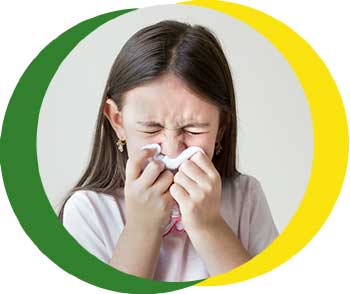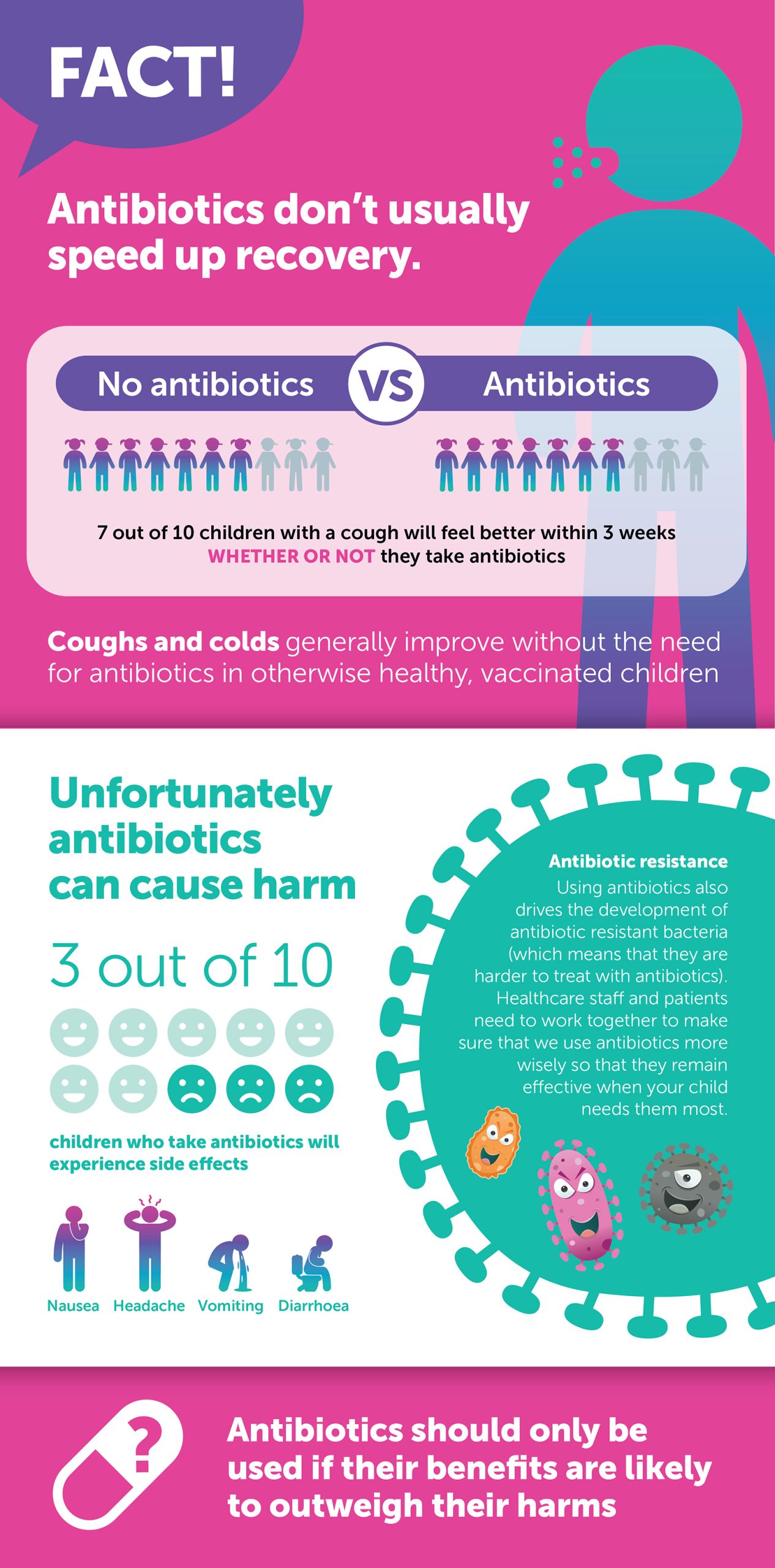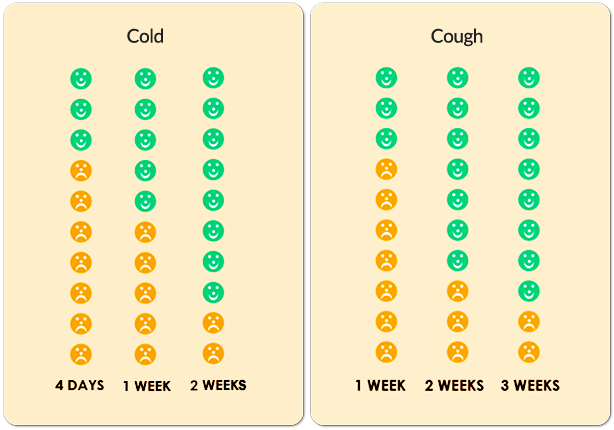Cough and cold

Coughs and colds are extremely common in young children. Over the first year of life, your child is likely to have up to 8 of these episodes.
- Coughing is the body’s natural way of clearing infection
- Most of these are likely to be caused by a virus, which means that antibiotics are of no benefit (and may actually result in side effects such as rash and diarrhoea, as well as increasing the risk of them developing antibiotic resistance)
- Having green snot or a noisy chest does not mean that your child has an infection requiring antibiotics
- It can sometimes be harder to identify the cause of a cough. In general, if it is associated with a runny nose, red eyes, ear pain or a wheeze, it is far more likely to be viral. Noisy chests are also common in young children with viral infections
- Coughing can wake a child in the night but does not mean the illness is more severe
- Children requiring antibiotics usually appear more unwell, with difficulty breathing, drowsiness, cold hands and feet and possibly blue lips – seek urgent medical attention if any of these features are present.
When should you worry?
If your child has any of the following:
- Is going blue around the lips
- Has pauses in their breathing (apnoeas) or has an irregular breathing pattern or starts grunting
- A harsh breath noise as they breathe in (stridor) present all of the time (even when they are not upset)
- Too breathless to feed (eat or drink) or talk/make noise
- Becomes pale, mottled and feels abnormally cold to touch
- Becomes extremely agitated (crying inconsolably despite distraction), confused or very lethargic (difficult to wake)
- Develops a rash that does not disappear with pressure (the ‘Glass Test’)
- Is under 3 months of age with a temperature of 38°C / 100.4°F or above (unless fever in the 48 hours following vaccinations and no other red or amber features)
You need urgent help
Go to the nearest Hospital Emergency (A&E) Department or phone 999
If your child has any of the following:
- Has laboured/rapid breathing or they are working hard to breathe – drawing in of the muscles below their lower ribs, at their neck or between their ribs (recession)
- A harsh breath noise as they breathe in (stridor) present only when they are upset
- Is becoming drowsy (excessively sleepy) or irritable (unable to settle them with toys, TV, food or picking up) – especially if they remain drowsy or irritable despite their fever coming down
- Seems dehydrated (sunken eyes, drowsy or not had a wee or wet nappy for 12 hours)
- Has extreme shivering or complains of muscle pain
- Is 3-6 months of age with a temperature of 39°C / 102.2°F or above (but fever is common in babies up to 2 days after they receive vaccinations)
- Continues to have a fever of 38.0°C or above for more than 5 days
- Is getting worse or if you are worried
You need to contact a doctor or nurse today
Please ring your GP surgery or call NHS 111 – dial 111
We recognise that during the current COVID-19 crisis, at peak times, access to a health care professional may be delayed. If symptoms persist for 4 hours or more and you have not been able to speak to either a member of staff from your GP practice or to NHS 111 staff, then consider taking them to your nearest Emergency Department
If none of the above features are present
Additional advice is also available to young families for coping with crying of well babies.
Self care
Continue providing your child’s care at home. If you are still concerned about your child, call NHS 111 – dial 111
What should you do?
- Keep your child well hydrated by offering them lots of fluids
- Most children with coughs/colds do not require treatment with antibiotics. Antibiotics rarely speed up recovery and often cause side effects such as rash and diarrhoea. They will also promote the development of antibiotic resistant bacteria in your child
- Try children’s paracetamol and/or ibuprofen as per the instructions on the packaging – cough syrup does not tend to help with coughs
- Try using saline nose drops or spray if your baby has a blocked nose
- For children over 1 year, a spoonful of honey (perhaps in a warm drink) half an hour before bed may help them to wake less often in the night
- For children over 2 years, vapour rubs (containing camphor, menthol and/or eucalyptus) may help children sleep better

How long will your child’s symptoms last?
- Unfortunately, coughs and colds can continue for weeks before they get better. In addition, over the winter, children are likely to get one viral infection after another, which can make you think that they are never well. Things will get better in the summer months!
- Having a cough for 2 or 3 weeks does not mean that your child needs antibiotics
- Children under 2 years of age with breathing difficulty may have bronchiolitis. This is an extremely common condition that usually starts as a runny nose and cough but their breathing may get worse over the next 2-3 days
- If your child is struggling to breathe, they need to be seen urgently by a medical practitioner and are likely to need treatment. If your child has croup (hoarse voice, barking cough, noisy breathing), they will also need to be seen by a medical practitioner
- The charts below show how long coughs and colds last in children. The faces represent 10 children who have seen their GP with a cough or cold. Green faces are those children who have recovered within that time period

Where should you seek help?
- If it is non-urgent, speak to your local pharmacist or health visitor.
- If your child has any of the above features, urgently see your GP. For an urgent out-of-hours GP appointment, call NHS 111.
- You should only call 999 or go your nearest A&E department in critical or life-threatening situations.

